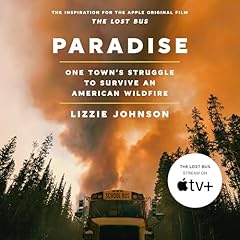
What Stands in a Storm
Three Days in the Worst Superstorm to Hit the South's Tornado Alley
No se pudo agregar al carrito
Add to Cart failed.
Error al Agregar a Lista de Deseos.
Error al eliminar de la lista de deseos.
Error al añadir a tu biblioteca
Error al seguir el podcast
Error al dejar de seguir el podcast
 Exclusivo para miembros Prime: ¿Nuevo en Audible? Obtén 2 audiolibros gratis con tu prueba.
Exclusivo para miembros Prime: ¿Nuevo en Audible? Obtén 2 audiolibros gratis con tu prueba.Compra ahora por $20.46
-
Narrado por:
-
Tracy Brunjes
-
De:
-
Kim Cross
April 27, 2011, marked the climax of a superstorm that saw a record 358 tornadoes rip through 21 states in 3 days, 7 hours, and 18 minutes. It was the deadliest day of the biggest tornado outbreak in recorded history, which saw 348 people killed, entire neighborhoods erased, and $11 billion in damage. But from the terrible destruction emerged everyday heroes, neighbors, and strangers who rescued each other from hell on earth.
With powerful emotion and gripping detail, Kim Cross weaves together the heart-wrenching stories of several characters - including three college students, a celebrity weatherman, and a team of hard-hit rescuers - to create a nail-biting chronicle in the Tornado Alley of America. No, it's not Oklahoma or Kansas; it's Alabama, where there are more tornado fatalities than anywhere in the US, where the trees and hills obscure the storms until they're bearing down upon you. For some it's a story of survival, and for others it's the story of their last hours.
©2015 Kim Cross (P)2015 TantorLos oyentes también disfrutaron:




















Reseñas de la Crítica
Las personas que vieron esto también vieron:









Gripping and Unblinking
Se ha producido un error. Vuelve a intentarlo dentro de unos minutos.
Heartfelt and respectful
Se ha producido un error. Vuelve a intentarlo dentro de unos minutos.
both heart breaking and heart warming
Se ha producido un error. Vuelve a intentarlo dentro de unos minutos.
Truly one of the best books I have ever come across
Se ha producido un error. Vuelve a intentarlo dentro de unos minutos.
True story of Tornado tragedy.
Se ha producido un error. Vuelve a intentarlo dentro de unos minutos.


